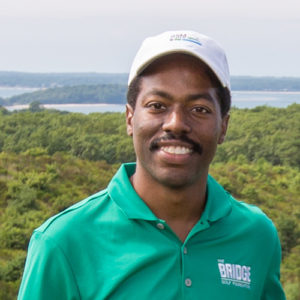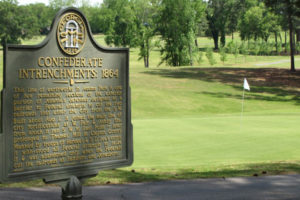 In honor of Junior Golf Week, we gathered stories from our team about how they were introduced to the game. This installment is from Co-Founder and Executive Director Farrell Evans.
In honor of Junior Golf Week, we gathered stories from our team about how they were introduced to the game. This installment is from Co-Founder and Executive Director Farrell Evans.
My father played on the golf team at Fort Valley (Ga.) State University in the late 1960s. Twenty years later I found his old set of Walter Hagen irons in our barn. This was my first set of clubs when I took up the game in the early 1980s.
By then my father no longer played golf, but my Uncle J.P. Evans was a scratch player at Forsyth Golf Club, our local club in Forsyth, Ga. He would be a great role model and advocate for me throughout my years as both a junior and a college player.
I was also fortunate to have the support of the very tight-knit community of golfers that made up the membership at this rural Georgia club built in the 1930s, with money from the Works Progress Administration. They were civil servants, retired doctors and lawyers, former college golfers, taxidermists, mill workers, police officers, lumbermen, truck drivers, salesman and high school football coaches: black and white.

A sign marking the Civil War history at Alfred “Tup” Holmes in Atlanta.
My other early inspiration came from my regular encounters with the African-American men and women who ran junior golf programs in Atlanta and around the country. From about the age of 11 through high school, I played in tournaments all over the country sponsored by organizations that were formed when African-Americans had very limited access to many public and private clubs. My home course in Atlanta was the Alfred “Tup” Holmes Golf Course, built on a Civil War breastworks.
On another spot of land down the street in southwest Atlanta, now a First Tee site at John A. White Park, I hit my own scuffed Titleist balatas into a large vacant field with kids from the neighborhood.
The vibrant community of black golfers that I belonged to in Forsyth, Atlanta and around the country was a testament to the historical and enduring presence of blacks in the game — no matter how white and exclusive it seemed in American society.